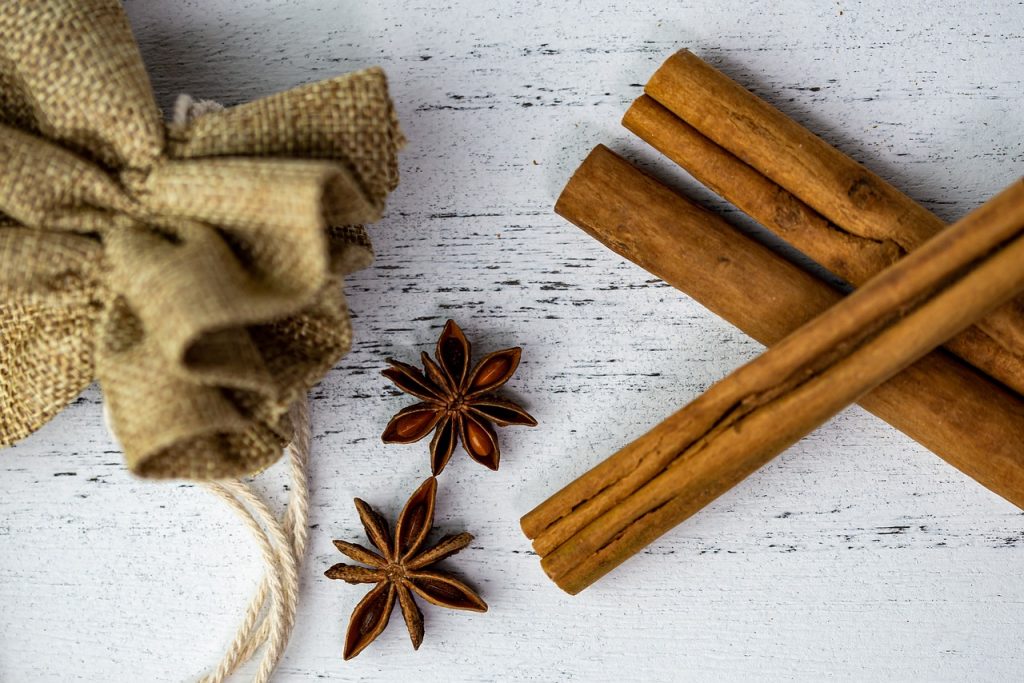
Did you know you that in your kitchen you have the remedies for many issues concerning gut health? Do you suffer from occasional indigestion? Does your stomach feel bloated after a meal? Do you feel your food is not digesting properly?
Simple herbs and spices used in everyday cooking, tea and other preparations can ease these uncomfortable symptoms.
Digestive issues are very common in our fast-paced world where we often eat on the run or squeeze a meal in between Zoom meetings or errands.
Let’s Help Ourselves
Thankfully we have herbs and spices to help us with these everyday complaints. As I said in the beginning of this article, we have in our kitchens many herbs and especially spices to aid in our digestion and gut health.
We know, and science backs this up, that our gut health is important to our overall wellbeing. The gut is responsible for not only digesting our food for nutrition, but also for our mental health. A healthy gut improves mood and relieves stress and anxiety. This is why there is what we call the gut-brain connection.
Using aromatic herbs and spices for gut health goes back to, at least, the ancient Egyptians. Many cultures use and have used these now common ingredients for wellbeing. In Ayurveda, for instance, Juniper Berries are used to promote digestion. Aromatic Bitters taken as an aperitif (before a meal) or a digestif (after a meal) became popular in 19th Century Europe. Bitters are an extract of various herbs and spices that always contains a “bitter” component which aids digestion. Here is a post from last winter on Bitters.
Ways to Use Aromatic Herbs & Spices
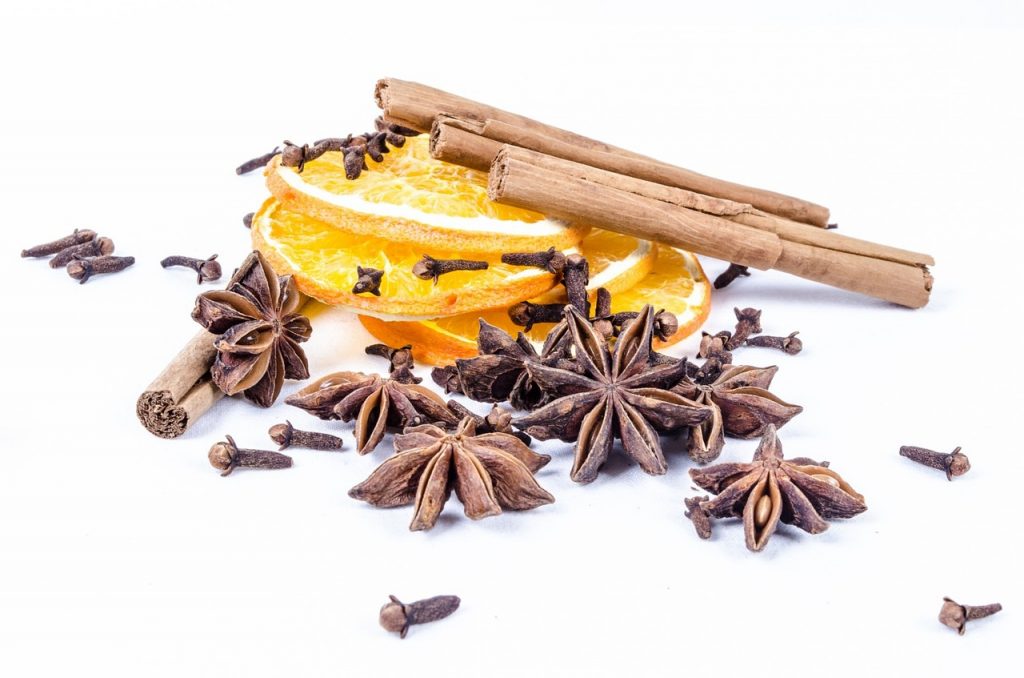
We don’t have to take bitters to get the benefit of these powerful herbs and spices. One easy and flavorful way is to use these ingredients in our food. Explore recipes that use more spices, such as Indian cuisine or Middle Eastern. If you’re not a “foodie” or don’t really have time to cook (or your family is adverse to trying more exotic cuisine), simply thinks of ways to use more of these foods in what you cook. How about adding cinnamon to that bowl of oatmeal? Or enjoy some mint tea before a meal.
It’s always a good idea to consult a health professional if you have a serious chronic issue or constant symptoms of digestive upset. The cause could be something serious that needs medical attention.
What are Aromatic Herbs & Spices?
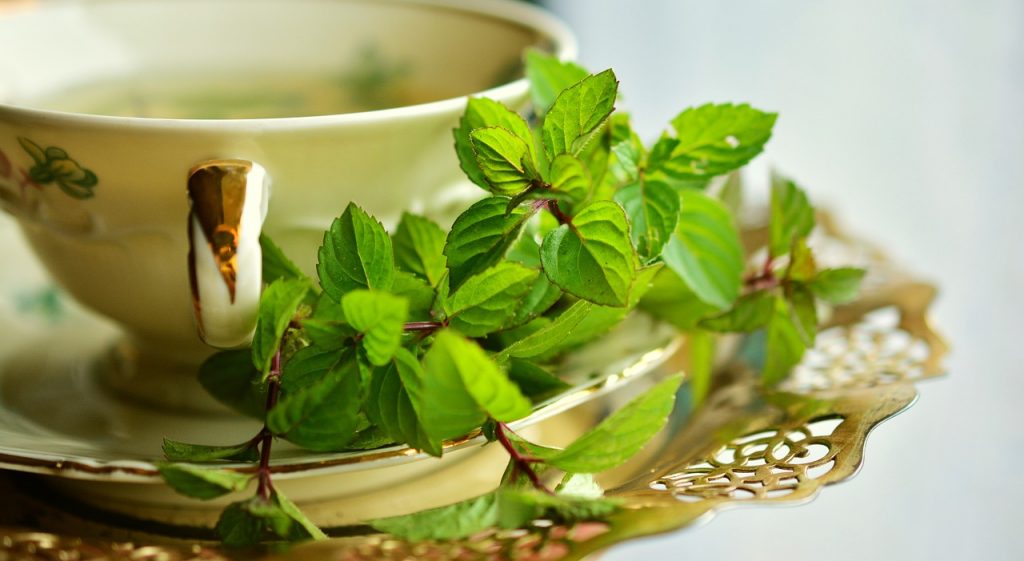
Cinnamon
Cinnamon is a warming herb that helps stimulate the appetite and circulation. Even children love the taste of cinnamon. How about cinnamon toast? Or, adding a little cinnamon to a stew or hearty soup?
Cardamom
Cardamom is another warming herb that strengthens the whole digestive system. Combine this lovely spice with cinnamon in cooking. Use it in baking for a change.
Coriander
This seed of the cilantro plant has a warm and spicy flavor. It combines nicely with cinnamon and cardamom for a well rounded earthy, spicy flavor. It can help with low appetite if taken in small amounts over a period of time. Use this combo in soups and stews, mix into a smoothie, bowl of yogurt or hot cereal.
Fennel
Sweet, pungent Fennel tastes like licorice or anise. It helps stimulate digestion. In some cultures it is common to chew a small handful of fennel seeds before and after a meal.
Ginger
Spicy and hot ginger is probably the most well known of the aromatic herbs we use to aid digestion and to calm digestive upset. Ginger Tea is wonderful to calm an upset stomach from motion sickness or, even, morning sickness. Even candied ginger works. I know people who keep a little bag of candied ginger in their car for motion sickness.
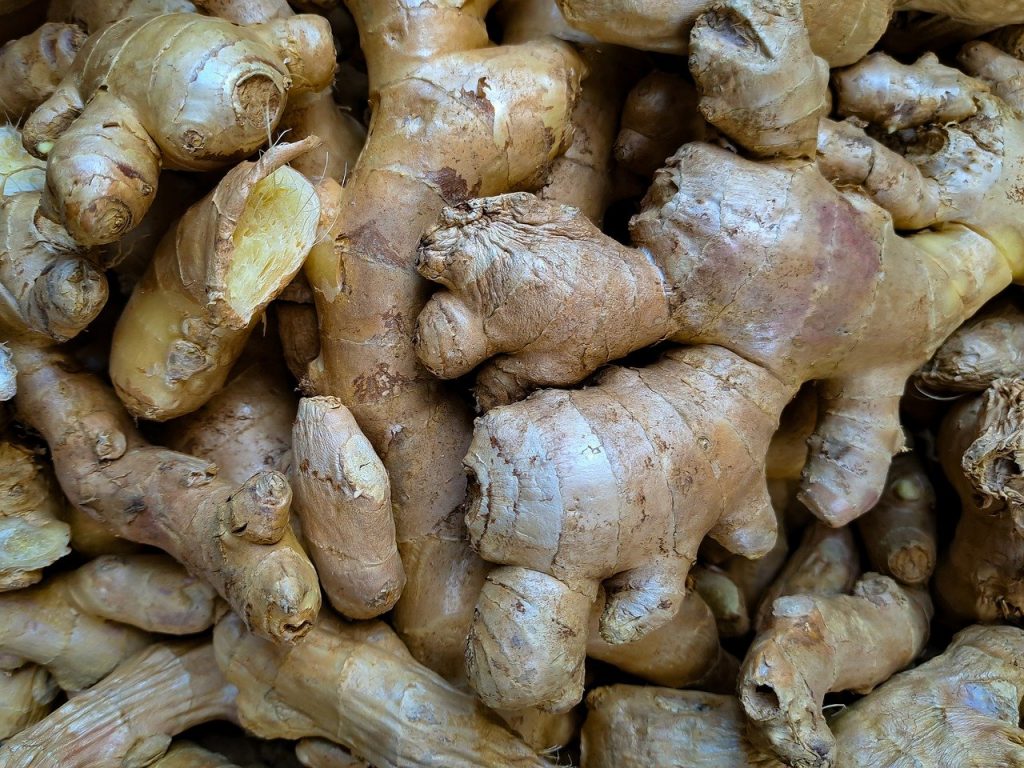
Juniper Berries
Juniper berries are not as common in the US as in other cultures, but they are a digestive aid. They have a lively flavor that lends itself as an ingredient in many bitters recipes.
Lemon Balm
Lemony Lemon Balm, a member of the mint family, is another herb we use for stomach upset. It has a mild taste and is suitable for children. We use it especially when there is anxiety leading to stomach upset. It mixes well with other herbs for a tea blend. Enjoy it warm or as a cool beverage. If the stomach is very upset, it’s best not to drink it iced.
Peppermint/Spearmint
The mints certainly stand out as soothing and cooling tea. Mints help smooth the long muscles of the gut which aids in digesting food properly. Mints are suitable for children, as well. If peppermint is too spicy, try spearmint, which is milder with a sweeter flavor.
Rosemary
It may be a surprise that Rosemary helps digestion and gut health. It is an appetite stimulator and can soothe stomach cramps. Use it in foods on a regular basis to keep the gut healthy. Besides, very few people can resist the aroma of rosemary when roasting potatoes or chicken.
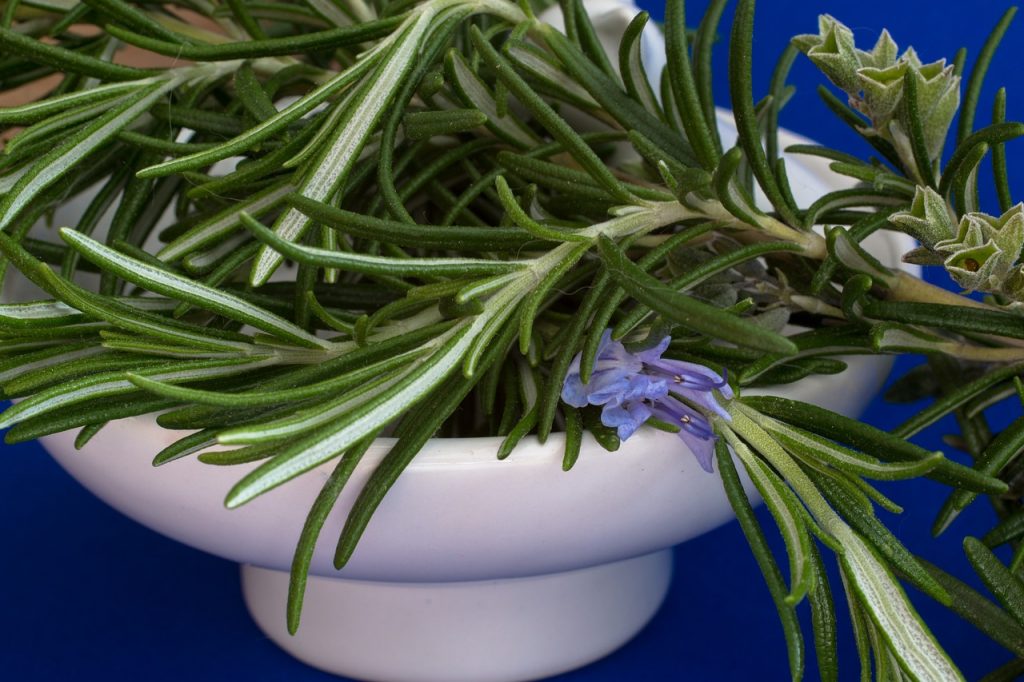
Conclusion
If you rarely cook or eat at home there is a great way to get the benefits of aromatic herbs and spices into your diet. And, that is to use Aromatic Bitters which contain some of the herbs and spices discussed. Bitters are not complicated to make- basically you’re just steeping certain ingredients in alcohol- generally vodka- for 2-4 weeks. Then you strain out the solids and store your healthy bitters in a bottle with a dropper cap. One dropper full in a small glass of juice, sparking water, wine or a cocktail is all you need. Use it daily for best results.
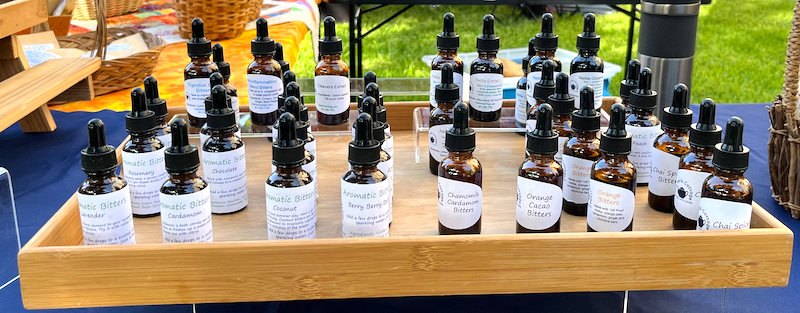
Here is a collection of bitters at my market table at the last event I attended. Contact me if you’re interested in bitters. I’m not quite done getting everything set up on the web site for sales.
In the meantime, here is a PDF of products, including Aromatic Bitters, that you can purchase from The Herb Cottage.
You can find a selection of Bitters on the Herb Shop webpage on The Herb Cottage Website.
*The statements on this page have not been evaluated by the Food and Drug Administration. This product is not intended to diagnose, treat, cure or prevent any disease.
